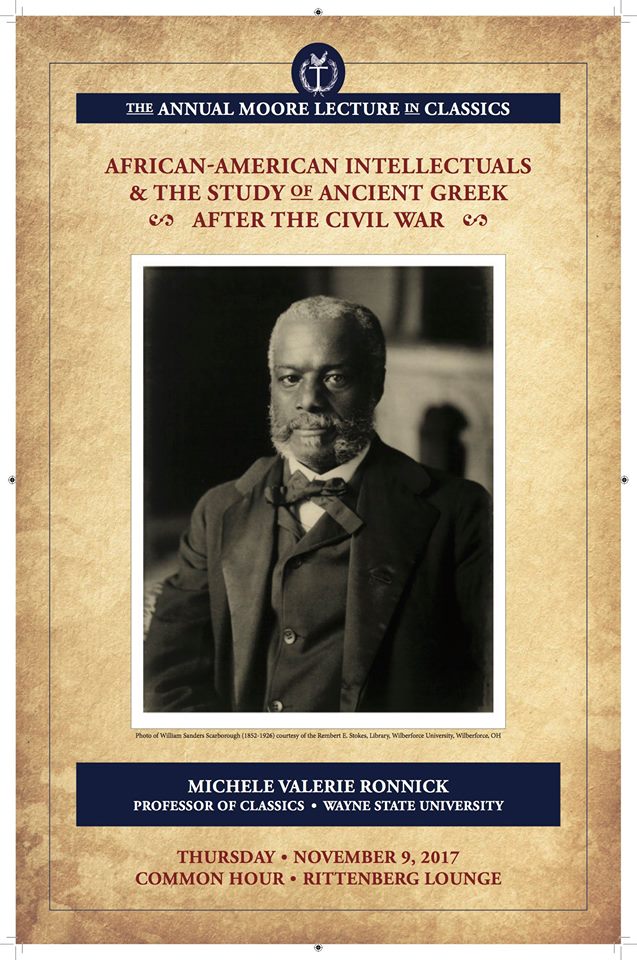By Tess Meagher ’20
Editor; History Major
In coordination with the History Department, the Trinity College Classics department hosted its annual Moore Lecture on November Ninth during common hour. The lecture, entitled “African American Intellectuals and the Study of Ancient Greek After the Civil War,” was given by guest lecturer Michele Valerie Ronnick. The lecture dealt specifically with historical African American scholars, mostly during the era of 1850-1950, who had an impact on the study of classics and/or on the way African Americans were educated in classics during this time period.
Professor Ronnick began the talk with an explanation of the importance of Greek and Latin in nineteenth-century western culture, specifically the American education system. She said that beginning around the same time as the American Revolution, there was a debate as to how useful the prerequisite of Greek and Latin for further education was. Among the founding fathers, there was a group of anti-classicists who said there was no place in the new republic for the study of dead languages. However, this group was in disagreement with other founding fathers who believed in the studies of the classics as necessary. The disagreement wasn’t resolved here and continued to affect the education system until the twentieth century.
The talk continued in a discussion of how African Americans approached this educational debate after the Civil War. The period immediately following the war was the first time most African Americans could openly study and it prompted an education crisis in America as people tried to figure out not only logistically how to teach these new citizens who were mostly past school age and had no level education, but also what they should be taught. Once again, the classics way of teaching was debated against a more pragmatic education style. Professor Ronnick stated that there became a division in the new black aristocracy between those educated in classics who became the cultural aristocracy and those educated in practical tasks (in English only) who became the monied aristocracy. Eventually, this debate ended with the pragmatic style of learning winning out and the people who developed classics studies for African Americans were forgotten and their work within universities effectively erased due to irrelevance.
Professor Ronnick’s work revolves around finding this erased work and these forgotten people and bringing back their ideas. The rest of the lecture focused on how these people became scholars of the classics and used and reworked the classics to help understand the African American experience. She focuses specifically on William Sanders Scarborough, a premier African American scholar of the classics and of the African American study of the classics. Scarborough emphasized the idea that practical studies were not worth more than classical studies and that classical studies were not “wasted” on blacks. An interesting fact revealed by the lecture is that Scarborough attended an American Philological Association meeting at Trinity College in July of 1898 where he spoke about Euripides to his colleagues.
The lecture as a whole was very riveting for History and Classics students alike and provided an interesting and mostly unknown look at African American education after the Civil War.


